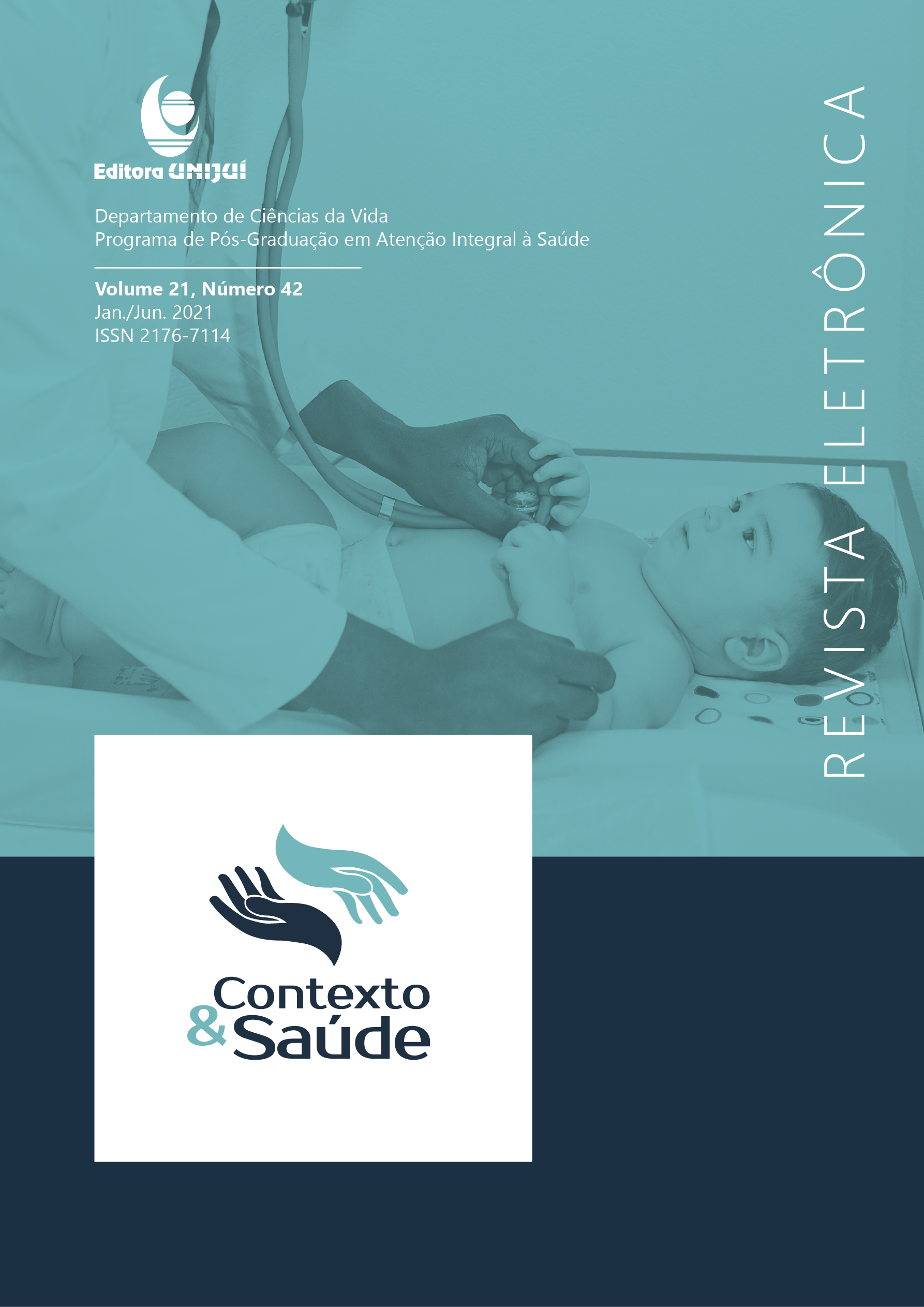ANÁLISE DA CORRELAÇÃO ENTRE INDEPENDÊNCIA FUNCIONAL E SATISFAÇÃO COM A TECNOLOGIA ASSISTIVA EM PESSOAS COM LESÃO MEDULAR
ANALYSIS OF THE CORRELATION BETWEEN FUNCTIONAL INDEPENDENCE AND SATISFACTION WITH ASSISTIVE TECHNOLOGY IN PEOPLE WITH SPINAL CORD INJURY
DOI:
https://doi.org/10.21527/2176-7114.2021.42.11875Keywords:
Atividades Cotidianas, Cadeira de Rodas, Equipamentos de AutoajudaAbstract
A lesão medular (LM) repercute altamente no nível de incapacidade física. Pessoas com LM que utilizam dispositivo auxiliar de mobilidade tendem a desenvolver maior independência funcional. O objetivo foi avaliar a correlação entre independência funcional em atividades de vida diária e a satisfação com o uso de tecnologia assistiva (cadeira de rodas) em pessoas com lesão medular. Trata-se de um estudo transversal analítico com abordagem quantitativa. A amostra foi de 146 participantes com lesão medular traumática com paraplegia e tetraplegia. Para coleta de dados foram utilizados um questionário sociodemográfico, e as escalas Spinal Cord Independence Measure-Self Reported Version (brSCIM-SR) e o Quebec User Evaluation of Satisfaction with Assistive Technology (QUEST.2.0) que permitiram a investigação. A média de idade foi 37,8 anos, com maioria do sexo masculino (82,9%), solteiros (52,7%), escolaridade média (53,4%), acidente de trânsito (50%), arma de fogo (22,6%). Houve predomínio de lesão completa (58,9%) e paraplegia(65,1%). Na brSCIM-SR a média geral foi de 55,3 (±15,8) no domínio do autocuidado de 14,6 (±5,3), respiração/esfíncter 26,4 (±7,4) e mobilidade de 14,3 (±5,5). Na satisfação com a tecnologia assistiva a pontuação total do QUEST 2.0 foi de 3,64 (±0,77), satisfação com o recurso 3,86 (±0,74) e a prestação de serviços 3,64(±0,77). Identificou-se bom desempenho na média da independência funcional. Além disso, altos níveis de satisfação com a tecnologia assistiva, de forma específica mais com o recurso do que com a prestação de serviços. Não foi encontrada correlação entre a independência funcional e a satisfação do uso de cadeira de rodas.
Downloads
Published
How to Cite
Issue
Section
License

This work is licensed under a Creative Commons Attribution 4.0 International License.
By publishing in Revista Contexto & Saúde, authors agree to the following terms:
The works are licensed under the Creative Commons Atribuição 4.0 Internacional (CC BY 4.0) license, which allows:
Share — to copy and redistribute the material in any medium or format;
Adapt — to remix, transform, and build upon the material for any purpose, including commercial.
These permissions are irrevocable, provided that the following terms are respected:
Attribution — authors must be properly credited, with a link to the license and indication of any changes made.
No additional restrictions — no legal or technological measures may be applied that restrict the use permitted by the license.
Notes:
The license does not apply to elements in the public domain or covered by legal exceptions.
The license does not grant all rights necessary for specific uses (e.g., image rights, privacy, or moral rights).
The journal is not responsible for opinions expressed in the articles, which are the sole responsibility of the authors. The Editor, with the support of the Editorial Board, reserves the right to suggest or request modifications when necessary.
Only original scientific articles presenting research results of interest that have not been published or simultaneously submitted to another journal with the same objective will be accepted.
Mentions of trademarks or specific products are intended solely for identification purposes, without any promotional association by the authors or the journal.
License Agreement (for articles published from September 2025): Authors retain copyright over their article and grant Revista Contexto & Saúde the right of first publication.

